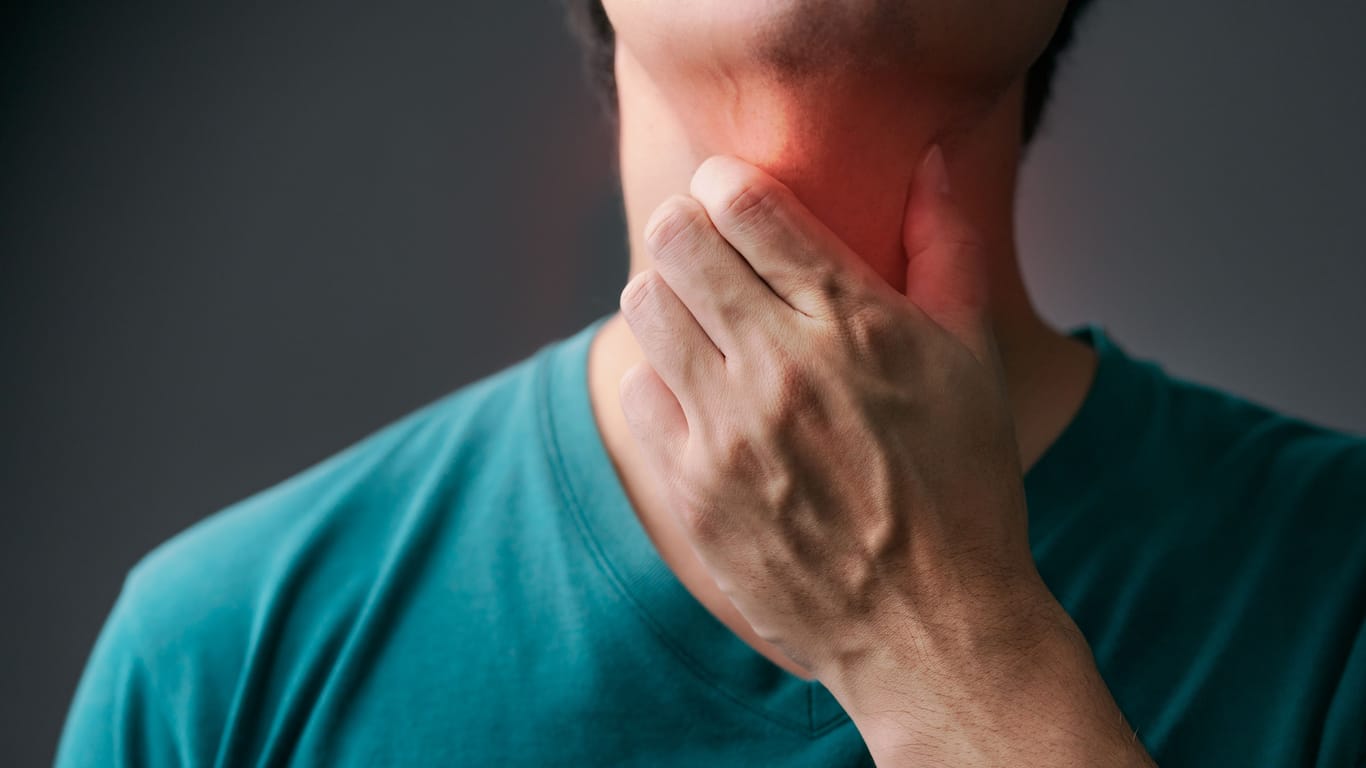Feeling a lump in the throat is usually extremely unpleasant and disturbing for those affected. Typically, the foreign body sensation is particularly noticeable when swallowing empty (e.g. saliva). However, it is less noticeable when consuming food and drinks. Pain is not usually associated with a lump feeling.
When visiting the doctor, there are often no visible changes in the throat that could explain the lump in the throat. However, this does not necessarily rule out the possibility that the perception has physical causes. The discomfort can be related to various illnesses.
- Lump in the throat: where the feeling comes from and what helps
Lump in the throat due to inflammation of the esophagus
A possible trigger for a lump in the throat is inflammation of the esophagus, which has developed as a result of a so-called reflux disease . The technical term for this is reflux esophagitis . But how does this happen?
Normally, a sphincter prevents stomach acid from flowing back into the esophagus. If this doesn’t work properly, the acidic gastric juice can irritate the mucous membranes in the esophagus. In addition, the acid reflux can cause the resting tension in the stomach sphincter to increase or cause it to spasm more easily. Both can manifest themselves as a lumpy feeling in the throat.
However, people with reflux disease often experience not only a lump in their throat when acid reflux occurs, but also usually heartburn . The situation is different with so-called silent reflux: stomach acid rises into the esophagus in the form of fine droplets and can thus reach the throat and larynx. Then symptoms such as heartburn may not occur and you may experience rather unspecific symptoms such as a lump in the throat, but also coughing, clearing your throat or mucus in the throat.
Inflammation of the esophagus and a lump in the throat: what helps?
If reflux-related esophagitis leads to symptoms such as a lump in the throat, the symptoms usually improve as soon as the disease is treated appropriately.
On the one hand, acid-inhibiting medications such as proton pump inhibitors (PPIs, such as pantoprazole, omeprazole) can help provide relief. But various lifestyle changes often have a positive effect. These include, among others:
- Only consume alcohol and caffeinated drinks such as coffee or black tea in moderation
- Eat very fatty, spicy or acidic foods only occasionally
- Sit upright during and after eating to put less pressure on the entrance to your stomach
- Allow at least two to three hours to pass between dinner and bedtime
- sleep with your upper body elevated
- do not smoke
- Lose excess weight

